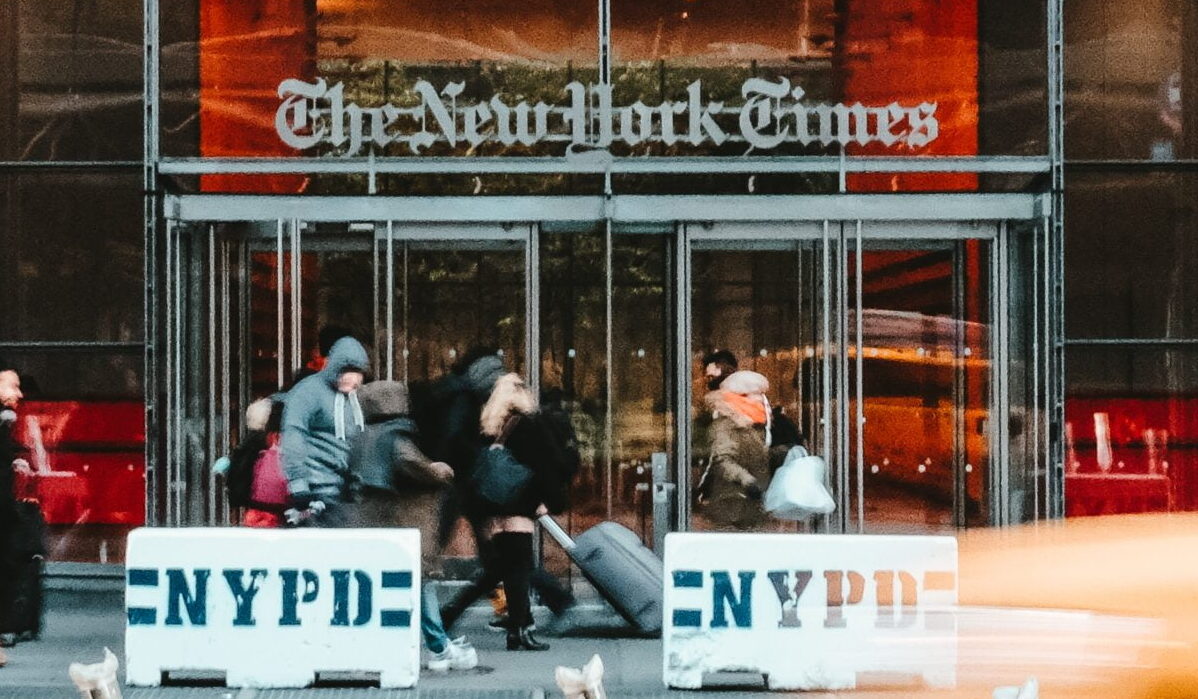New York Times files lawsuit against OpenAI and Microsoft demanding destruction of ChatGPT

Key Points
- The New York Times (NYT) is suing OpenAI and Microsoft for copyright infringement, claiming that millions of its articles were used to train AI models without a license. The information provided by the chatbots would now compete with the newspaper's offerings.
- The paper is seeking billions of dollars in damages and the destruction of the AI models trained on its articles.
- The lawsuit follows failed out-of-court negotiations. It is likely to be a landmark case for the news industry and the use of training data in AI models.
The New York Times is seeking billions in damages and the destruction of chatbot models that use the Times' copyrighted material.
A rumor from this summer is now official: The New York Times (NYT) is suing OpenAI and Microsoft for copyright infringement.
The NYT claims that millions of its articles have been used without a license to train AI models that now compete with the news agency as a source of reliable information.
The NYT accuses OpenAI and Microsoft of "using The Times’s content without payment to create products that substitute for The Times and steal audiences away from it."
The paper seeks "billions of dollars in statutory and actual damages" for the "unlawful copying and use of The Times’s uniquely valuable works."
According to the New York Times, OpenAI and Microsoft have made a point of using Times journalism to train their AI software because the material is considered reliable and accurate. The two companies are trying to "free-ride on The Times' massive investment in its journalism," the complaint states.
The NYT is demanding that AI language models trained on the newspaper's articles be destroyed. The suit was filed in Federal District Court in Manhattan. OpenAI and Microsoft have not yet responded to the allegations.
Failed out-of-court negotiations
The lawsuit cites several instances in which chatbot users received almost verbatim excerpts of Times articles that would otherwise have required a paid subscription. The Bing chatbot allegedly returned almost exact copies of NYT reviews.
It also highlights the potential damage to the Times' brand from so-called "AI hallucinations," a phenomenon in which chatbots insert false information that is then falsely attributed to a source. The lawsuit cites several instances in which Microsoft's Bing chat provided false information purportedly from the Times.
The lawsuit follows an impasse in negotiations between the Times, Microsoft and OpenAI. The Times approached Microsoft and OpenAI in April to raise concerns about the use of its intellectual property and to explore "an amicable resolution" that could include a commercial agreement and "technological guardrails" for generative AI products. The talks did not result in an agreement.
The Times has hired the law firm Susman Godfrey as lead outside counsel for the litigation. Susman is also leading a class action lawsuit against Microsoft and OpenAI on behalf of nonfiction authors whose books and other copyrighted material were used to train the companies' chatbots.
Regardless of the outcome, the case will be groundbreaking and have a significant impact on the news industry and the AI sector.
If one of the world's most prominent media companies were to prevail against OpenAI, the AI industry would have to scramble for new training data, and existing AI models would become obsolete or need to be retrained if they were trained on the publisher's material - which is likely the case for all of them.
Essential functions such as chatbots, which scour the web in real-time for up-to-date information and rephrase it for chatbot responses, would also be challenged.
OpenAI recently signed agreements with Axel Springer and the Associated Press to license their articles as training material for AI models. OpenAI pays for these licenses and also provides the publishers with access to the OpenAI technology.
AI News Without the Hype – Curated by Humans
As a THE DECODER subscriber, you get ad-free reading, our weekly AI newsletter, the exclusive "AI Radar" Frontier Report 6× per year, access to comments, and our complete archive.
Subscribe now